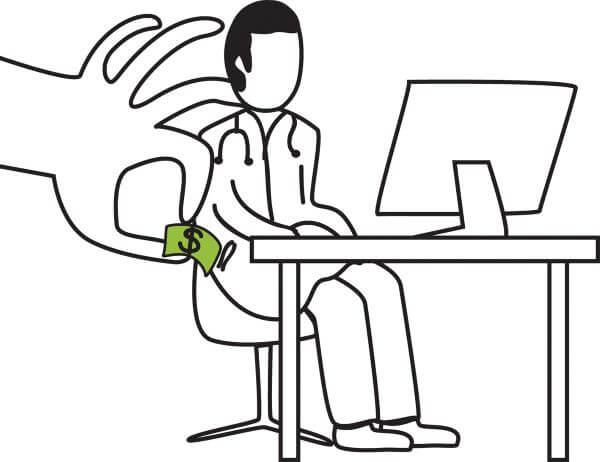
The shift away from paper checks to electronic payment, underway since the early 2000s, has driven a new thorn in physicians’ sides: electronic funds transfer (EFT) fees, which payers routinely charge physicians as a condition of electronic payment. These fees can be as high as 5% and, alongside declining physician payment, exacerbate threats to practice viability and ultimately patients’ access to care.
That was the message the Texas Medical Association recently delivered to the Centers for Medicare & Medicaid Services (CMS), imploring the agency to resolve this longstanding issue as part of the forthcoming 2024 final Medicare physician fee schedule. Although CMS did not address EFT fees in its proposal, TMA President Rick Snyder, MD, prioritized the issue in a Sept. 8 comment letter to CMS, signaling its importance.
“TMA urges CMS to address via regulation the excessive [EFT] fees charged by payers when paying physicians what they have earned,” he wrote.
The Affordable Care Act established standards for paying physicians via EFTs, such as requiring all payers to offer EFTs and encouraging physicians to accept them, with the aim of increasing efficiency and saving money. A 2012 CMS analysis predicted the elimination of paper checks would save public and private payers, third-party administrators, hospitals, and physician practices $3 billion to $4.5 billion over 10 years.
In August 2017, CMS posted a notice informing payers they weren’t allowed to charge physicians a fee associated with EFTs. But the notice “later disappeared without explanation,” Dr. Snyder wrote.
Without intervention, EFT fees flourished. Nearly 60% of medical group respondents reported payers were charging EFT fees to which they hadn’t agreed, according to a 2021 MGMA Stat poll.
That year, TMA, the American Medication Association, and dozens of other state medical associations and national specialty societies asked CMS to issue guidance affirming physicians’ right to receive EFT payments sans fees and to enforce such rules.
“Physicians are left with no option but to ‘pay to get paid,’” the signatories wrote. “This outrageous situation is analogous to an employee being required to enroll in a program that would deduct a percentage of each paycheck to receive direct deposit payments from an employer.”
TMA continues to monitor CMS’ payment policy changes. In the meantime, the federal agency is expected to release the final 2024 Medicare physician fee schedule in early November.
TMA member physicians can report payment issues by submitting a Reimbursement Services Request for Information form.
Emma Freer
Associate Editor
(512) 370-1383